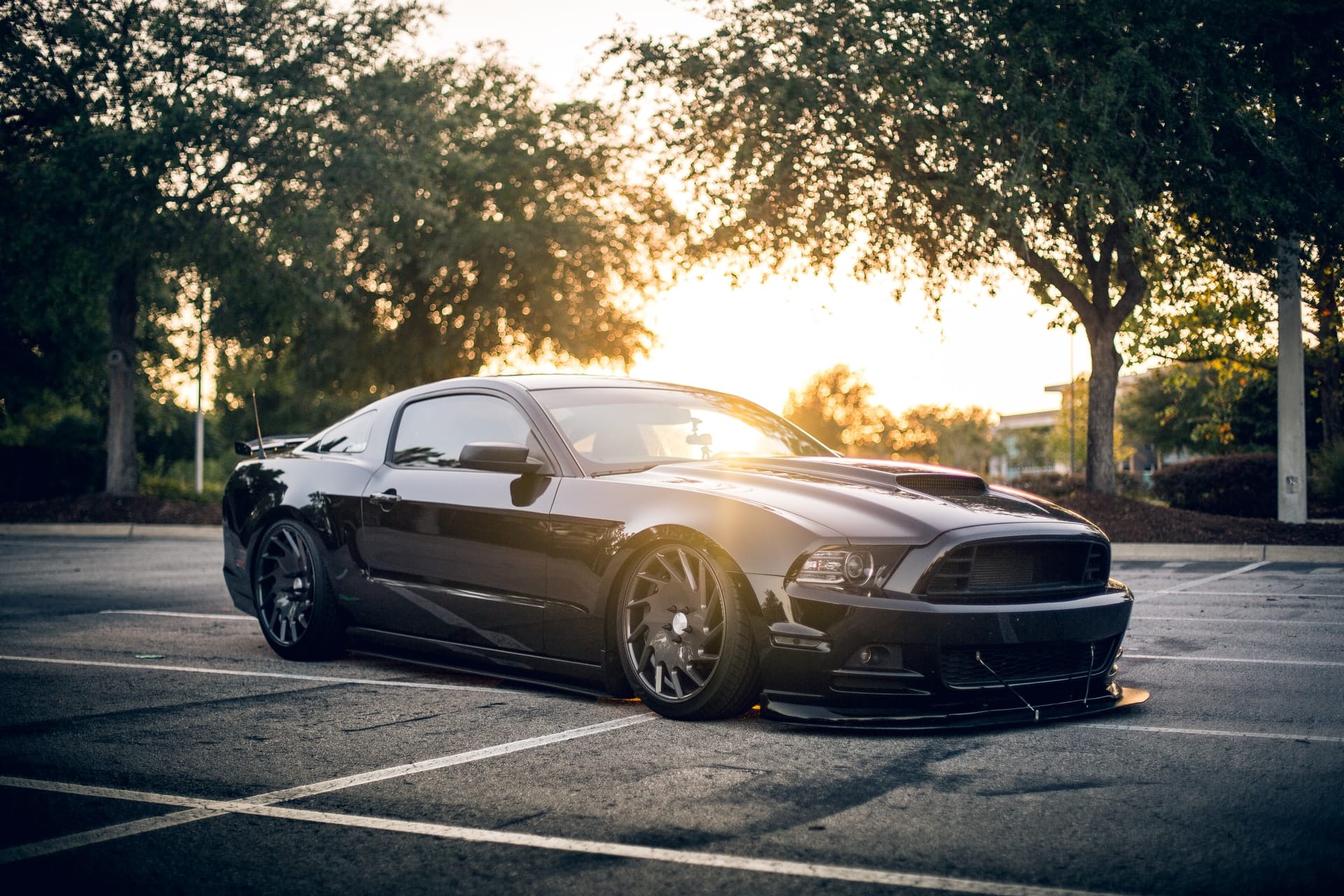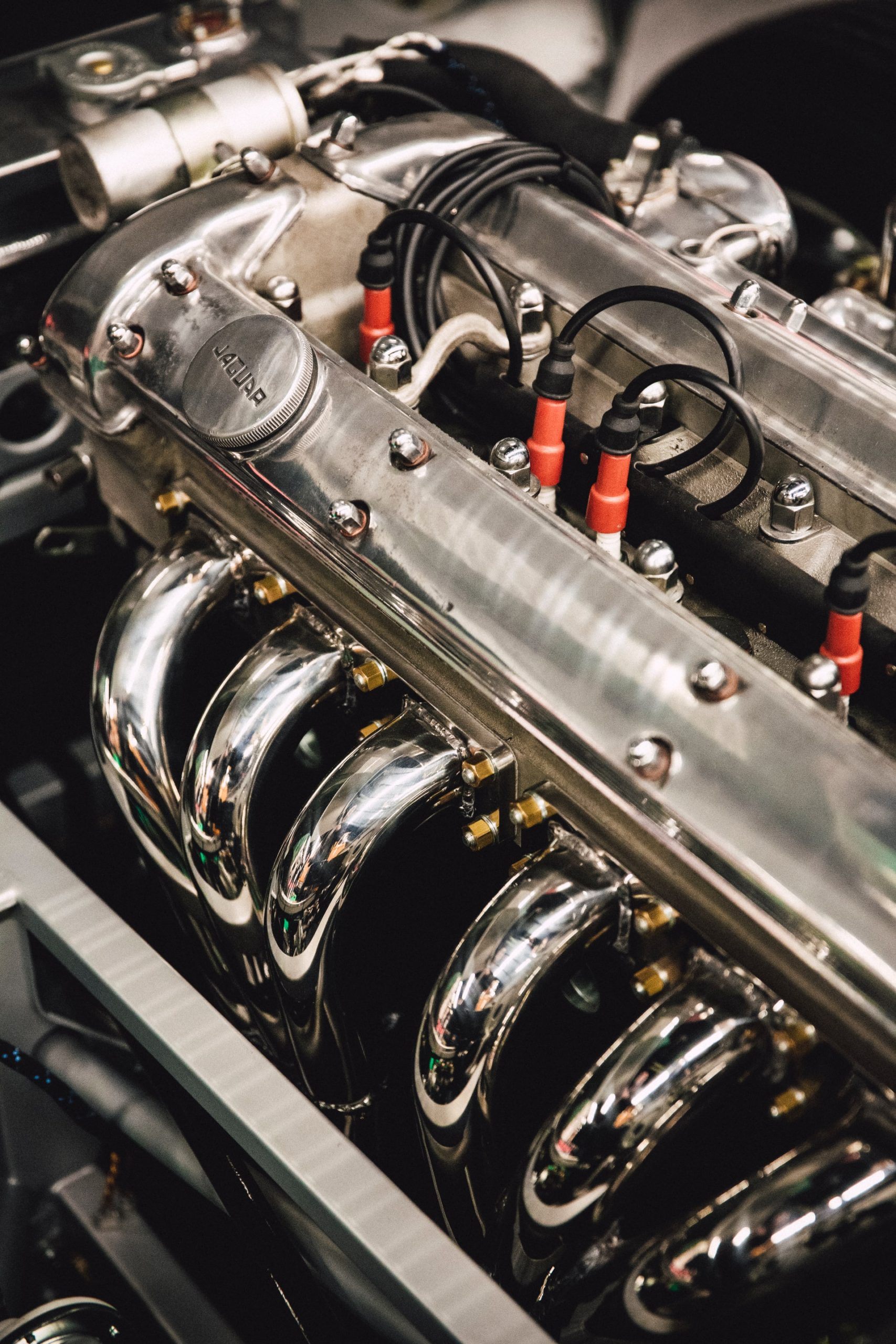People always ask, “Is it better to go turbo or supercharged?” This is the ultimate question in forced induction. Both work differently in performance and cost. They are forced induction systems that are designed to force air into your engine. The extra air you get into your engine, the more power your car will make. This creates a considerable boost, which can be as much as 50% more power to your engine.
Let’s take a look at how the two differ in performance, cost, and benefits.
IMAGE: UNSPLASH
Turbochargers
A turbocharger is a turbine-driven forced induction system that increases your engine’s efficiency and power output by pushing more air (exhaust gases) into the combustion chamber. It’s an improvement from a naturally aspirated engine power output because the compressor can force more air and more fuel onto the combustion chamber than atmospheric pressure alone.
In naturally aspirated engines, gases are forced into the engine by atmospheric pressure, which fills the volume void caused by the downward stroke of the pistons, which usually create a low-pressure area similar to how the liquid is drawn into a syringe.
The main objective of the turbocharger is to improve your engine’s efficiency by increasing the air density, allowing more power per engine cycle.
The turbocharger may also be used to increase fuel efficiency without increasing power. This is usually achieved by the recovery of waste energy on the exhaust and feeding it back into the engine’s intake. Using the wasted energy to increase the air’s mass ensures that all fuel is combusted before being discharged at the start of the exhaust stage.
Manufacturers commonly use turbochargers in cars, trucks, trains, aircraft, and construction equipment engines. They are mostly used in diesel cycle combustion engines and Otto cycle.
Superchargers
A supercharger is an air compressor that increases the density or pressure of air supplied to an internal combustion engine. This ensures each engine cycle gets more oxygen, allowing it to burn more fuel and work more efficiently, thus increasing power. They can be powered mechanically using a belt, shaft, gear, or a chain connected to the engine’s crankshaft.
The direct connection means that superchargers are more powerful than turbochargers, but they emit more smog, meaning they lack a wastegate.
Turbochargers vs. Supercharger Reliability
The sole purpose of a forced induction system combined with its proximity to a car’s engine means that reliability is a vital issue in deciding which one to use between a turbocharger and a supercharger. A turbocharger is usually not connected to the engine, while a supercharger is connected to the engine by a belt. How long and often you can utilize the benefits of either is an essential factor to consider.
Turbochargers are complicated and difficult to maintain. They are less noisy than superchargers, but they also build up a relative amount of heat, which means they should be correctly installed and insulated. An average turbocharger needs to be replaced every 100k-150k miles. If not, it can damage your engine. You can visit Goldfarb inc turbocharger collection anytime to replace your turbocharger and get professional help.
Turbochargers have become popular with automakers in recent years because they can deliver more power to smaller fuel-efficient engines. However, high-quality turbo engines aren’t being created to support a turbocharger’s force, so in this case, the turbocharger may not be reliable.
On the other hand, superchargers are arguably more reliable than turbochargers. They are easier to maintain, and they are also easier to install. Although they may be louder than turbochargers, they enhance the RPMs by a significant amount.
The Advantages And Disadvantages Of A Turbocharger
Pros
- Turbochargers allow relatively smaller engines to produce more power than their size.
- You’ll notice a considerable increase in horsepower when using turbochargers.
- Smaller engines use less fuel to idle and have less reciprocating and rotational mass, providing a better fuel economy.
- They are more efficient. Turbochargers use energy lost in a naturally aspirated or supercharged engine. Thus, the recovery of this energy improves the engine’s overall efficiency.
- They run quietly.
- They can be used in high altitude areas.
- They have a wastegate that produces less carbon emissions.
Cons
- Turbochargers lag, especially large ones. They take time to spool up and produce a power boost.
- They heat up very quickly and often tap into the engine’s oil supply. You’ll need constant oil changes.
- In some turbochargers, applications, especially the larger ones reaching the boost threshold, provide an instantaneous surge in power, which compromises tire traction or can cause the car to be unstable.
- Typical turbochargers are often used for specific RPM range where the exhaust gases’ flow is enough to boost the engine.
The Advantages And Disadvantages Of Superchargers
Pros
- The main advantage of superchargers over turbochargers is that they don’t lag. Power delivery is swift because the engine’s crankshaft controls the supercharger.
- It also provides an increase in horsepower to your engine. Adding a supercharger to your engine is a swift solution to boosting the engine’s power.
- Superchargers provide more power at low EPM compared to turbochargers.
- They are cost-effective, easy to install, and maintain.
- Brake power is increased by 30-45%.
- They are more reliable than turbochargers.
Cons:
- They are less efficient. The major disadvantage of superchargers is that they suck engine power simply to produce engine power. They run off an engine belt connected to the engine crankshaft, so you’re powering an air pump with another air pump, which makes them less efficient than turbochargers.
- They produce a lot of noise.
- They remain active at low RPMs, which negatively affects the car’s fuel economy.
Which One Is better?
Turbochargers and superchargers are a great way of increasing horsepower to your car’s engine. However, turbochargers are better to use because they increase the efficiency of the engine in multiple ways. Though they are less reliable than superchargers, they are inexpensive and can help small engine vehicles obtain engine power benefits. On the other hand, superchargers are all about dramatic power boosts at any cost, and in some cases, may damage your car’s engine.
If you are interested in even more technology-related articles and information from us here at Bit Rebels, then we have a lot to choose from.


COMMENTS